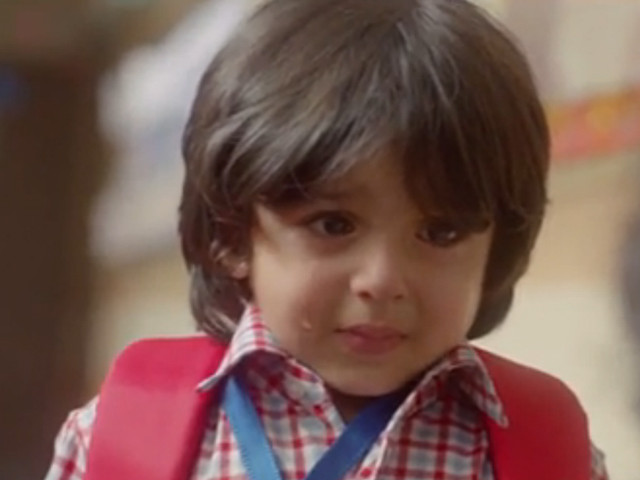But most importantly, this man dared to cry, that too in front of a woman.
In those moments, I saw bravery. Because he kept saying,
“See? I’m crying. I didn’t even know I could cry so much. Don’t tell anyone I cried, okay?”
This “he” is not any particular man. And the above lines are not any one particular incident. I have witnessed it more than once. And every time I have realised that for a man to cry in our society is a difficult boundary to push. We associate manliness with certain outwardly signs, like physical strength, like a temper bordering on rage, like earning a lot of money and like being not very in touch with one’s emotions.
Emoting and crying is something that is considered an aspect of femininity. We grow up listening to maxims like,
“Mard ko dard naheen hota”.
(Men don’t get hurt)
Long before the Madhuri-fame advertisement, as part of a campaign against domestic violence, reminded us, we had all heard,
“Larkay naheen rotay.”
(Boys don’t cry)
So men eat, laugh, sleep, feel happy and sad, but are not supposed to cry as that is seen as a sign of weakness. Generation after generation of men grow up with this pre-conditioning. When a natural outlet of grief or frustration is not allowed in the form of tears, the next best bet for men is either cruel silence or anger. We keep talking of rights of women, but usurp men of this very basic freedom to express emotions without both men and women not even realising it.
The most courageous of men ever are my role models; the Prophet (pbuh) and ‘Umar (ra) and ‘Ali (ra), and their peers. They changed the world. They won hearts and they won territories. They fought bloody battles like lions, with bravery unrivalled. They buried their loved ones with their own hands, and went back to the work of serving the cause of upholding justice. And through it all, they dared to cry, unabashedly. We have all read accounts of how the Prophet (pbuh) wept profusely, sometimes on the death of a loved one and at other times for the fear of Allah (swt) and for concern for his people. We accept that, and love that, and idealise that.
But today, a man who is moist-eyed is often seen as a weakling.
There is no doubt that women, biologically, are more prone to crying, as testosterone prohibits crying to some extent and that is the hormone that almost defines men; this is perhaps why, on an average, men cry once a month and women about five times a month, especially during the premenstrual phase and after their menstrual period. However, culture and allowances of freedom of expression also have to do with gender disparity when it comes to crying. While excessive crying can be symptomatic of other psychological issues, there can be considerable long term harmful effects of not allowing someone to cry.
Parents, and especially mothers, need to understand this when bringing up boys. Crying is a natural, organic form of human expression and is a right if carried out in moderation. When we stop men from crying at any age, we deprive them of a natural human catharsis. We also rob them of a certain sense of empathy that helps them understand why women or children cry. This is precisely why many men, unable to handle a crying woman, end up getting up angry and ask her to stop crying or ask in frustration why she is crying.
Any human emotion, if stifled unnaturally, will have harmful effects, and will end up being channelised into other negative emotions like anger or emotional disconnect.
Manliness, often translated as strength, is not just about not crying. Some of the things we see as signs of strength, like violence, anger and yelling, are actually signs of inherent weakness. Strength is about a certain amount of emotional intelligence and the ability to communicate with one’s self and with others. It takes strength to show that you are vulnerable. This is what makes us human.


COMMENTS
Comments are moderated and generally will be posted if they are on-topic and not abusive.
For more information, please see our Comments FAQ